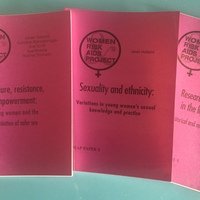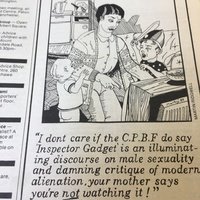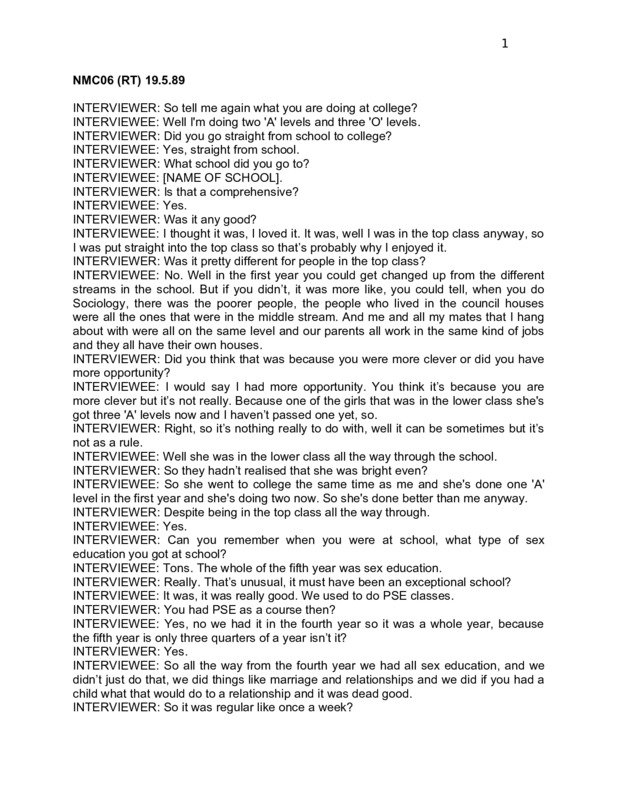Feminism in the 1980s
Although second-wave feminism was a feature of the 1970s, it was not until the 1980s that it became a form of popular mainstream culture. The WRAP research project was self consciously feminist, using feminist colours (purple) and symbols in its materials and explicitly focusing on questions of power in research encounters and the project of making "feminist knowledge" which by definition might differ from or go beyond everyday understandings presented by the young people interviewed.
As a feminist research team, the wrap brought together and expressed intergenerational feminist tensions. So Sue Sharpe, Janet Holland, and Caroline Ramazanoglu had all been part of a new feminist wave in the late 1960s and 1970s. Sue Scott was slightly younger and networked into radical feminist networks in the northwest who met. Rachel Thomson was of a different generation yet, born in the 1960s and growing up through Thatcherism.
In Manchester in the 1980s, there was a strong radical feminist movement, associated with experiments in living which included shared houses, women-only spaces and cooperative practices around politics, food and social support. It was a time when sexual politics were fiercely debated, with ideas of compulsory heterosexuality and make violence central to the construction of female-oriented erotics and everyday political practices. In this context, people and ideas moved easily between academic and community groups with spaces such as the feminist research seminar at the University of Manchester operating as a crucible for feminist theory and research. Sexuality was at the centre of much of these politics which questioned the naturalness and inevitability of heterosex and the practices of penetration that left women vulnerable to pregnancy and infection.
This was also a moment in which political lesbianism demanded that we unpick the knots of desire confronting the ways that inequality becomes eroticised and consolidated in heterosexual sexual acts. At the same time and partly in response a new sexual politics of pleasure arose that resisted the rationalisation of erotics, asserting the conflictual and unconscious operations of desire licensing a new embrace of feminist that was nevertheless fierce and rebellious. Social class, feminism and local formations of gender combined to create diverse and uneven sexual cultures among young women. One thing that most young women shared was the necessity of doing something different to their mothers. This may be because the economic conditions no longer existed where it was possible to be a stay at home mother supported by the family wage of a male breadwinner, it might also be because opportunities were opening up for further and higher education that had not been available to their mothers or grandmothers. Access to contraception, the lessening of stigma around unmarried sex and illegitimacy and the waning power of religion in defining and authorising respectability created a new ethical landscape for sexuality where the question of who to be and how to live were in the hands of ordinary people in a new way.
LGBT politics were also a site of radicalisation in Manchester in the late 1980s. Opposition to Section 28 of the Local Government Bill that proscribed local authorities from ‘promoting homosexuality as a pretended family relationship’ was fierce with over 20,000 people attending the ‘Never Going Underground’ rally in February 1988. Censorship was a focus for resistance, responding to overly zealous attempts by Greater Manchester Police (lead at that time by James Anderton) to confiscate sex-positive health education information and ‘offensive’ record covers. The Campaign for Press and Broadcasting Freedom held regular meetings in the city including conferences on the representation of women in the media.
Here we draw together a number of cases of young women who we might see as 'feminist' in different ways. They are a diverse group and show the flexibility of feminism as a political and identity project. Social class is an important factor at play with young women starting from very different places and accessing or resisting very different sets of resources. Social mobility also seems to be very tied up with the feminist project with the desire to get educated and to escape the home and/or neighbourhood bringing a common refrain. These young women have an acute awareness of the traps and seductions that surround them. They speak like sociologists. Sometimes citing sociological phrases (affluent worker), reading through the appearance of things to reveal the power relations below. Sex, love and commitment are perilous territory for these young feminists, sites of experience and of discovery as well as emotional and embodied ties to a local destiny.
Related interview:


